If you don’t have the best Milky Way camera lens, it doesn’t really matter which camera you’re using.
I’ve been testing and comparing different camera lenses and, in short, these are the best lenses to photograph the Milky Way:
1. Sigma 20mm f/1.4 DG HSM
2. Sony 20mm f/1.8 G
3. Rokinon 14mm f/2.8
4. Venus Laowa 15mm f/2
5. Nikkor Z 20mm f/1.8 S
6. Canon RF 15-35 mm f/2.8
7. Sigma 14-24mm f/2.8 DG
8. Tamron 17-28mm f/2.8 Di III RXD
9. Irix 15mm f/2.4 Blackstone
10. Viltrox 24mm f/1.8
In addition to having a good lens, using the best settings to shoot the Milky Way is crucial to taking the best possible images. Also, don’t forget that the camera is fundamental in night photography, so make sure you use your lens with one of the best cameras for Milky Way photography.
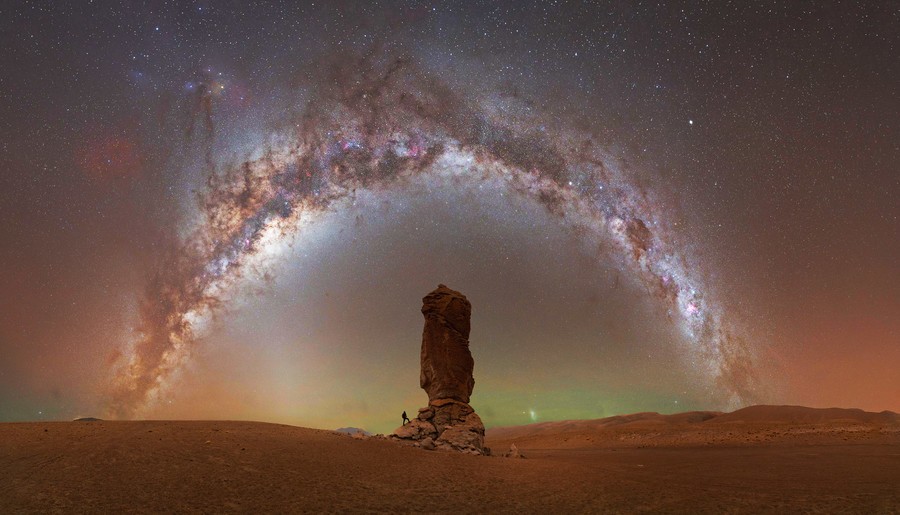
Having a bright and fast lens is key in Milky Way photography – Sony 20 mm f/1.8
This winning list of the best lenses for Milky Way photography only includes wide-angle lenses for the Milky Way since these are the best to capture our galaxy. Also, these lenses are specifically designed for Full-Frame cameras.
However, throughout this article, you’ll find a list of the best lenses to take pictures of the Milky Way according to your budget and preferences. I’ve included some of the best prime and zoom APS-C lenses and the best Nikon, Sony, and Canon lenses for Milky Way photography.
If you need buying advice, I’ve added a section with some key things to consider when buying a Milky Way lens.
Ready to find the best lenses for shooting the Milky Way?
GET THE CALENDAR WITH THE BEST DATES TO PHOTOGRAPH THE MILKY WAY IN 2024
You'll also receive our PDF guide to photographing the Milky Way!
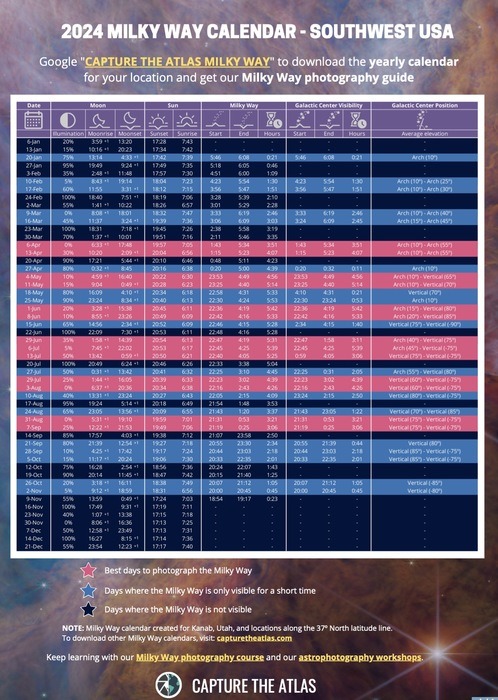
1. Sigma 20mm f/1.4 – The best lens for Milky Way photography
| The newly released Sigma 20mm f/1.4 lens is the best lens for Milky Way photography out there. It offers everything you need for you to capture stunning night images: sharpness, fast aperture, and wide-angle field of view. It does all this while still being fairly affordable. Another great feature of the Sigma 20mm f/1.4 DG HSM is that it’s compatible with most lens mounts, including Nikon, Sony, and Canon full-frame cameras. |
When the Sigma 20mm f/1.4 DG HSM was released, I was sure it was going to be an outstanding lens for Milky Way photography, and I’m glad that I tested it because now I’m not looking back.
2. Sony 20mm f/1.8 G – Best Sony lens for Milky Way photography
| Sony 20 mm f/1.8 is the best lens for shooting the Milky Way. The quality in low-light photography is stunning. It’s fast and sharp even in the corners, with no deformations, aberrations, and other issues common in other Milky Way lenses. It’s also light and compact, and the price is affordable compared to other quality prime lenses. |
As soon as I tested it, it became my absolute favorite lens for shooting the Milky Way, and after two years I’m still using this lens in almost all my night shootings. You can see some examples of the images I’ve taken with this lens in my Milky Way photography guide.
3. Rokinon 14mm f/2.8 – Best cheap lens for Milky way photography
| This is the best quality-priced lens for Milky Way photography. It’s wide, light, fast, it doesn’t have a strong coma in the corners, and the best thing is that it’s very cheap. The only con is the lack of autofocus, but it’s always better to use the manual focus when shooting the Milky Way, as I explain in the focus section of my Milky Way photography guide. Compatible with: Nikon, Sony, Canon, Fuji, Pentax. |
*Note: If you prefer a longer focal length to shoot the Milky Way, the Rokinon 20 mm f/1.8 and Rokinon 24 mm f/1.4 are also quality options at a great price.
4. Venus Laowa 15mm f/2 – best third-party Milky Way lens
| This is one of the best 3rd party lenses for Milky Way photography in mirrorless cameras. It’s designed specifically for night and low-light photography, and it’s very compact and light. It doesn’t require special filters, which is also something to consider if you plan to use it as a general landscape lens. Compatible with: Sony, Nikon, and Canon mirrorless cameras. |
5. NIKKOR Z 20 MM F/1.8 – Best Nikon lens for the Milky Way
| If you’re shooting with any of the Nikon Z mirrorless models, this is your lens for Milky Way photography. It’s very fast, reliable, and offers excellent performance even when shooting wide open. I’ve tested this lens on many occasions with our Capture the Atlas Photo Tour students and I think that it should be mandatory on any Nikon Shooter Astro bag. |
6. Canon RF 15-35 mm f/2.8 L – Best Canon lens for Milky Way
| This is Canon’s fastest ultra-wide-angle zoom, and it’s designed to work with their mirrorless R models. It’s wide, fast, and the most versatile lens for Milky Way if you’re a Canon shooter. Pair this lens with the Canon EOS Ra Astro camera, and you’ll see the best results. |
7. Sigma 14-24mm f/2.8 DG – Best Wide-angle zoom lens
| This is probably the best general wide-angle zoom to shoot the Milky Way. It’s robust, sharp, and built with impressive quality. Compatible with: Nikon, Sony, and Canon full-frame cameras. |
8. Tamron 17-28mm f/2.8 Di III RXD
| This is a good wide-angle lens for Milky way photography. The image quality is superb across its entire focal length range, which is difficult to find in other ultra-wide-angle lenses. It’s light and compact and has internal zoom, which is a great plus. If you are shooting with a Nikon or a Canon camera, check out the Tamron 15-35mm f/2-8 instead. |
9. Irix 15mm f/2.4 Blackstone – Best cheap lens for DSLR
| This lens can also be considered as one of the best quality-price lenses for shooting the Milky Way for DSLR cameras. Compatible with: Nikon and Canon Full-frame DSLR models and Pentax. |
10. Viltrox 24mm f/1.8 – An alternative for Sony E-mount and Nikon Z
Best APS-C lenses for Milky Way photography
APS-C sensors are not the best at gathering light, so pairing your crop-sensor camera with a fast and quality lens is crucial if you want to get the best Milky Way images.
Best prime lenses for shooting the Milky Way (APS-C)
- Rokinon 12mm f/2.0 x-mount: The best all-around lens for photographing the Milky Way on APS-C mirrorless cameras. It’s light, sharp, fast, and highly affordable. Compatible with: Sony, Fuji, Canon, Olympus, and Panasonic.
- Rokinon 10 mm f/2.8 ED: A similar option to the previous one, but also available for Nikon and Canon APS-C DSLR cameras.
- Sigma 16mm 1.4 DC DN: If you’re looking for a lens with autofocus and some weather sealing, this is a good option. Compatible with: Sony E mounts, Fuji X, Canon EF, and Micro 4/3 cameras.
Best wide-angle zoom lenses for shooting the Milky Way (APS-C)
- Tamron 11-20mm f/2.8 Di III-A RXD: In terms of quality for price, this is the best generic wide-angle lens for photographing the Milky Way on APS-C cameras. Compatible with Sony and Fujifilm APS-C cameras.
- Sony – FE 12-24mm F4 G: This is the best wide-angle Milky Way lens to pair with Sony crop-sensor models. It’s not f/2.8, but it’s wide and versatile. Compatible with: Sony.
Best Sony lenses for Milky Way photography
Sony has some of the best lenses to shoot the Milky Way. Apart from the Sony 20 mm f/1.8 mentioned above, these are my top 3 picks:
- Sony FE 14mm f/1.8 GM: One of the most awaited lenses by Sony shooters, and it’s the best option if you want a fast ultra wide-angle lens for Milky Way. It’s also a fantastic lens for Northern Lights, and even though it’s more expensive than the Sigma 14mm 1.8 commented above, this model offers more quality and a significant reduction in size/weight (1 lb/460 gr vs. the 2.5 lb/1170 gr of the bulky Sigma 14 f/1.8).
- Sony FE 24mm F/1.4 GM: The 24 mm G Master model is more expensive, especially for being a prime lens, but it’s widely considered as the best Sony Milky Way lens in terms of image quality and performance. It’s also a good lens for filming the Milky Way, thanks to its f/1.4.
- Sony FE 16-35mm F2.8 GM: Wide-angle scenes, details, time-lapse… this is a very versatile lens to shoot the Milky Way. I’ve been using it in the field for a long time, and it’s my main go-to lens not only for the Milky Way but also for other night shootings like Northern Lights photography. It’s extremely sharp across the entire range with outstanding image quality. To me, it’s the best Sony wide-angle zoom lens for shooting the Milky Way.
- Sony FE 12-24mm f/2.8 GM: This is the fastest and most versatile ultra-wide-angle zoom for Milky Way photography. It’s heavier, bulkier, and more expensive than other Sony Milky Way lenses, but the possibilities are endless. It’s also the perfect option for shooting Milky Way panoramas and time-lapses.
Best Nikon Lenses for Milky Way Photography
Talking specifically about the best Nikon lenses for shooting the Milky Way, apart from the Nikkor Z 20 f/1.8, you’ll find these lenses for full-frame cameras:
- Nikkor 14-24mm f/2.8 S: This is the flagship wide-angle lens for Nikon mirrorless cameras. It’s the lightest f/2.8 wide-angle zoom lens in the market, and the design keeps light-point sources like the stars round and sharp.
- Nikkor Z 24 mm f/1.8 S: If 20 mm feels too wide for you, a better option could be this model. It offers very similar specs as the Nikkor Z 20 f/1.8 but with a longer focal length. Good for general Milky Way photography and for stitching panoramas with no distortion.
- Nikkor 14-24 f/2.8G ED: This is the lens I used for years to photograph the Milky Way. It’s versatile, sharp, and fast. If you’re shooting with a Nikon DSLR, it’s still a great lens, and you can get it at a lower price. However, new lenses offer better functions and results, such as the Sigma 14-24 f/2.8.
- Nikkor 24mm f/1.4G ED: The best Nikon DSLR prime lens for shooting the Milky Way. This lens allows you to use a shorter shutter speed while capturing more light. The difference between f/1.4 and f/2.8 in night-sky photography is huge, so if you shoot with a Nikon DSLR this is a very good option to consider
Best Canon lenses for Milky Way photography
We are still missing some specific mirrorless Canon prime lenses for Milky Way, since the only good option is the Canon RF 15-35mm f/2.8 at this moment. If you’re looking for the top Canon lenses to shoot the Milky Way, any of these 2 primes for Canon DSLR can be a nice addition to your kit:
- Canon EF 14mm f/2.8L II USM: This is probably the best Canon lens for shooting the Milky Way. It’s wide and fast enough to capture sharp stars and the Milky Way in a few seconds.
- Canon EF Wide-Angle 24mm f/1.4 II USM: It’s not the widest, but it is the fastest Canon prime lens to shoot the Milky Way and a very good option if you shoot Canon.
What makes a good Milky Way camera lens?
There are some key things to consider when buying lenses for Milky Way photography. Some of the most important are:
These recommendations also apply for lenses to shoot other night photography genres like star trails photography
Conclusion
Choosing the best camera lens for Milky Way photography is not easy, but it’s fundamental if you want to capture the best possible images.
Once you have a good camera for shooting the Milky Way and know the best camera settings in Milky Way photography, having the right lens will be the key factor in having a sharp and quality shot.
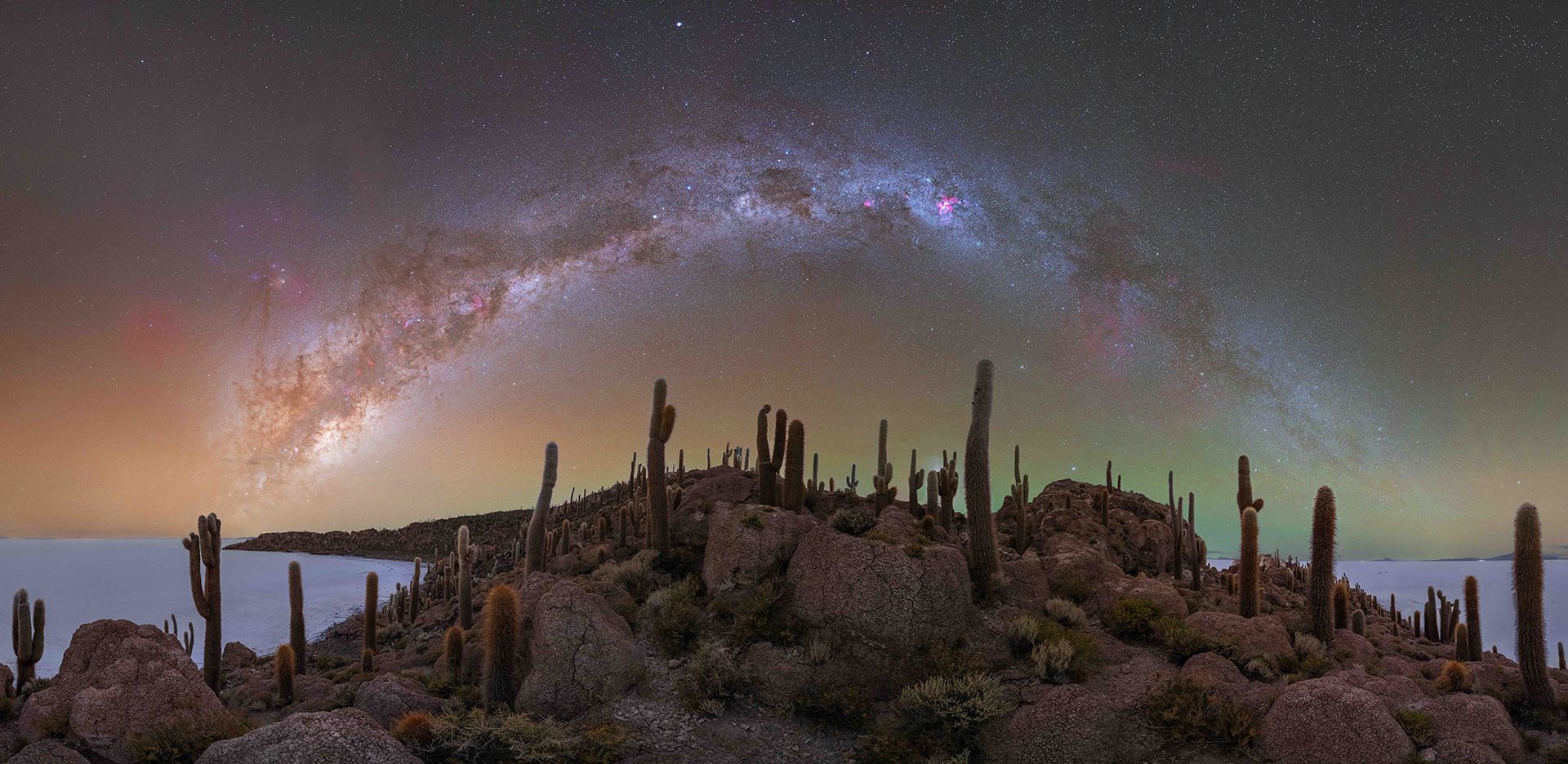
Having the right lens is fundamental for taking the best images
Some Milky Way lenses are expensive, so a good tip is to rent a Milky Way photography lens for your trip. This is also a good option for testing a lens before purchasing.
In my case, I always rent my Milky Way photography lenses with Lensrentals, which operates in the US. Their rentals are cheap and straightforward. Plus, if you rent your equipment through this link and use the Lensrental promo code ATLAS15, you will get a 15% discount.
For example, the one-week rental of the Sony 12-24 f/2.8 GM is $93, while the full price of this lens is $2,998.
You can check other camera rental companies in your location in our guide to Camera lens rental.
I hope this guide helps you choose the best Milky Way lens according to your needs. If you aren’t sure if you can shoot the Milky Way with your lens, or if you have any other questions, feel free to reach out in the comments 😉
Happy Captures and clear skies!
GET THE CALENDAR WITH THE BEST DATES TO PHOTOGRAPH THE MILKY WAY IN 2024
You'll also receive our PDF guide to photographing the Milky Way!

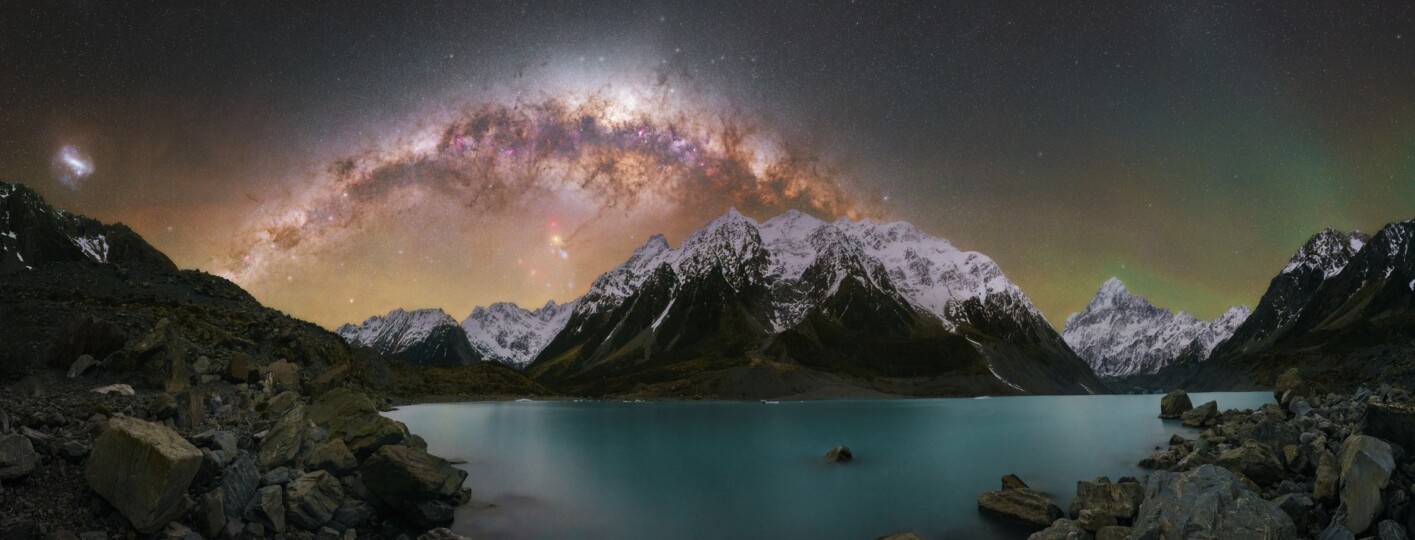

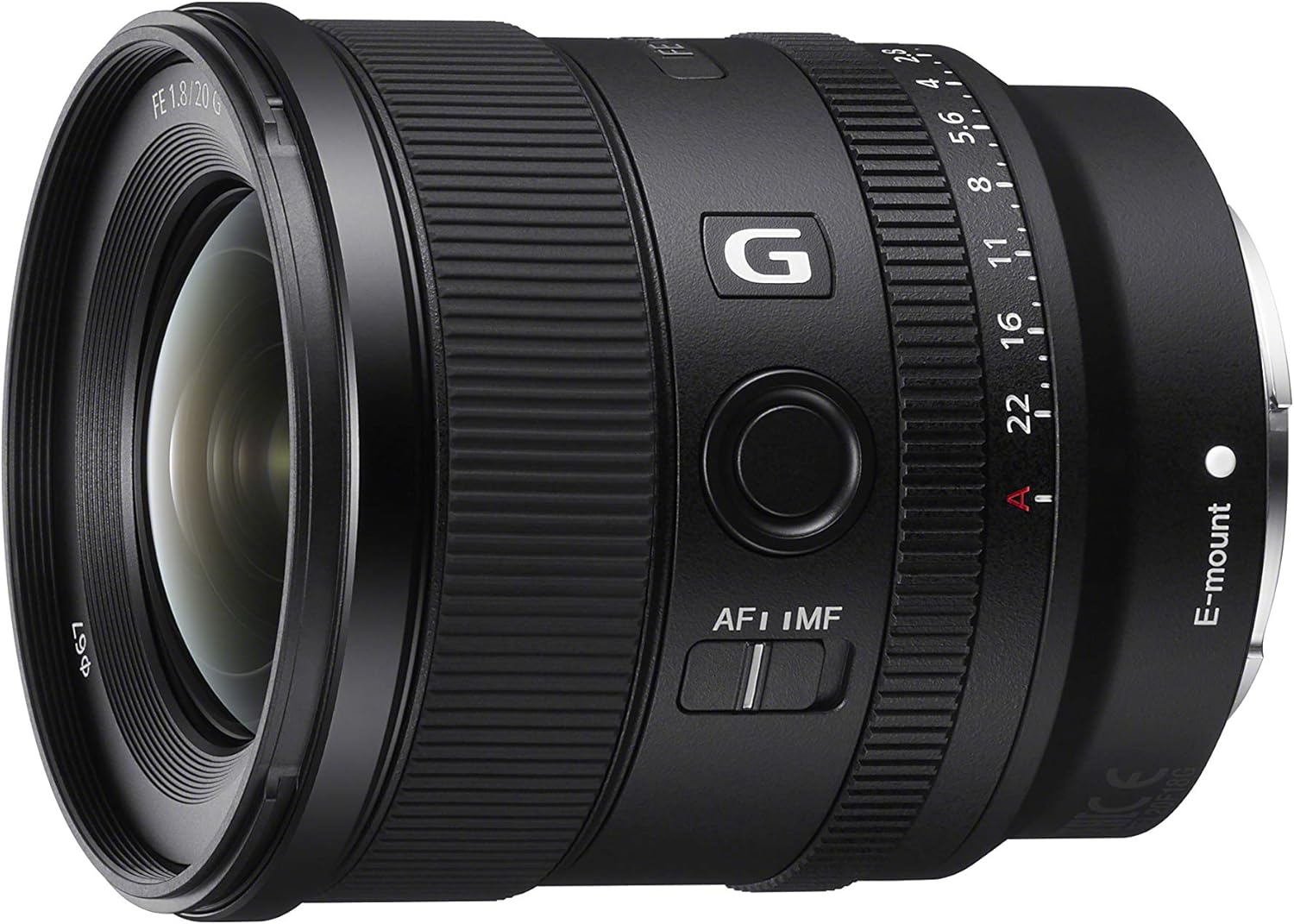
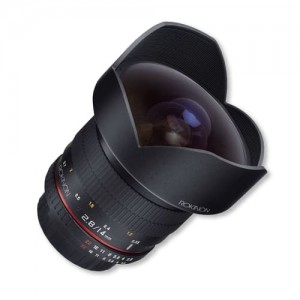
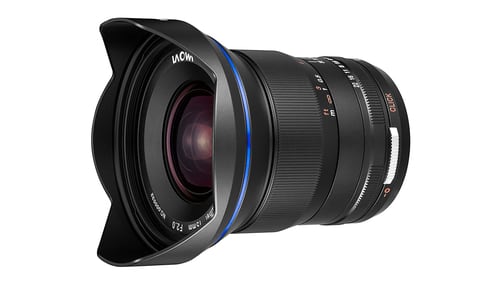

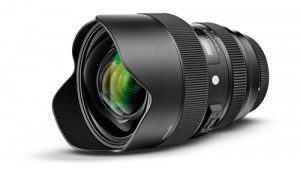
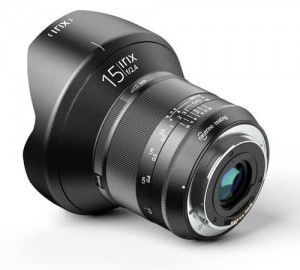

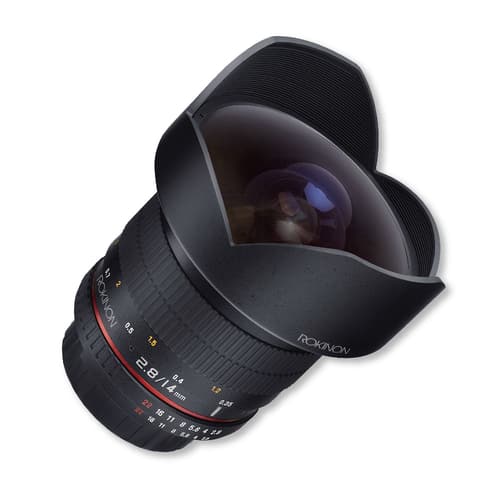

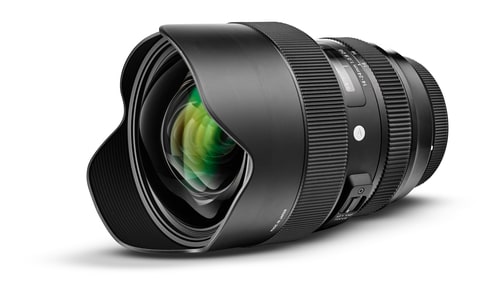

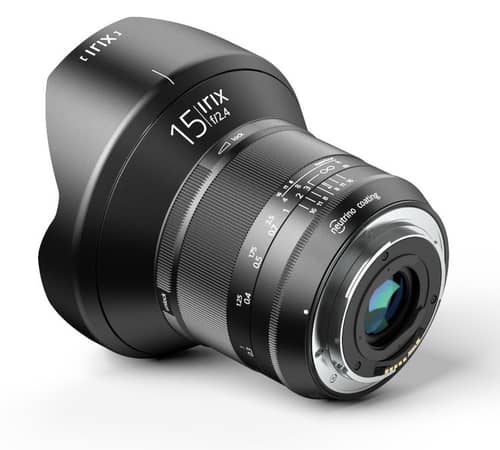
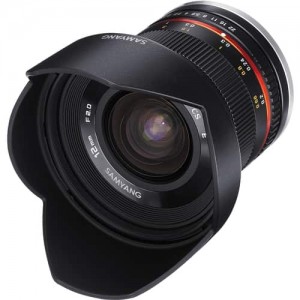
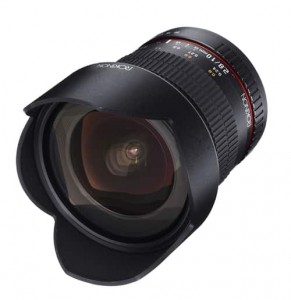
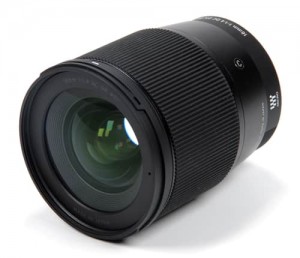

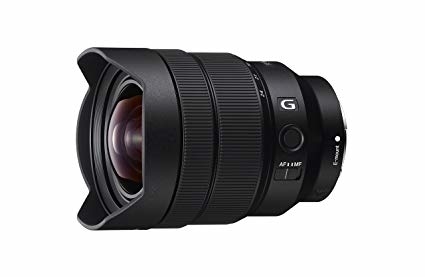

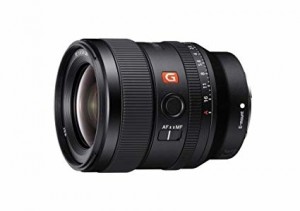
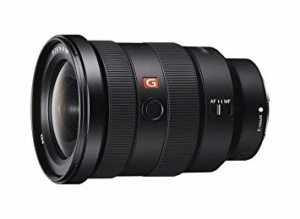



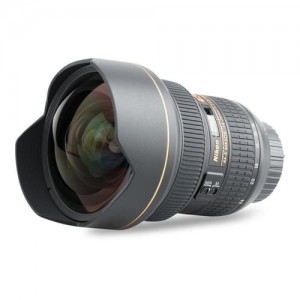
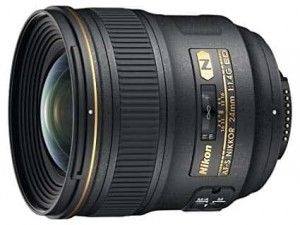
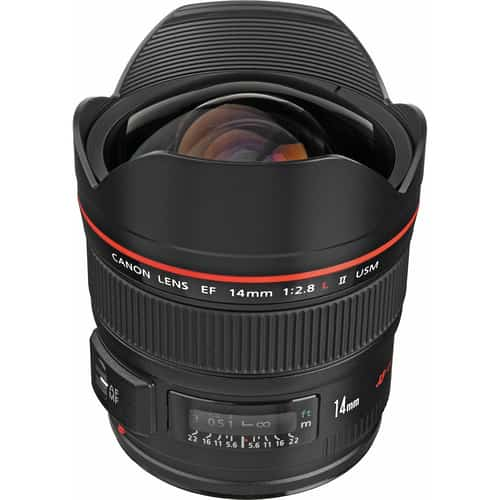
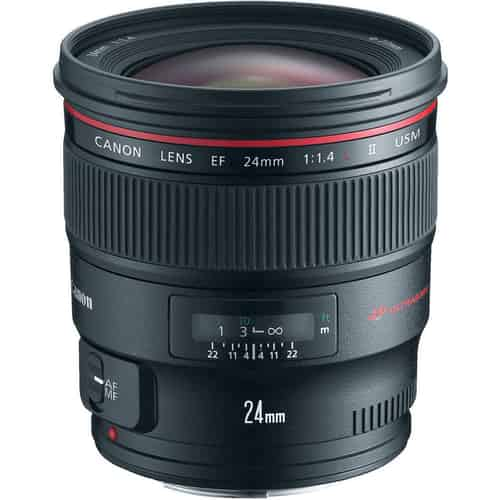

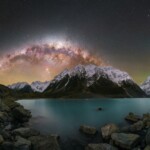
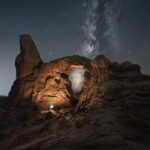
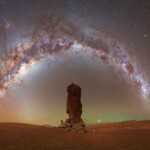
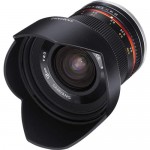
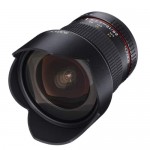
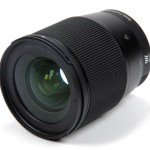
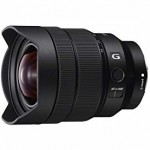
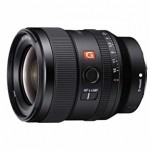
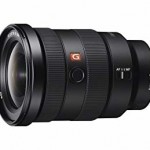
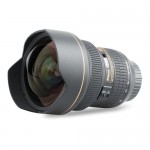
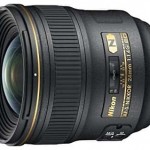
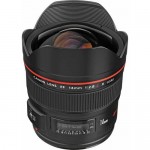
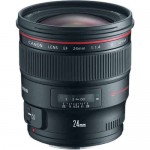
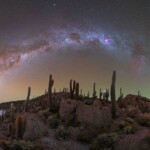
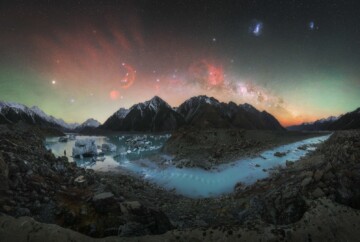
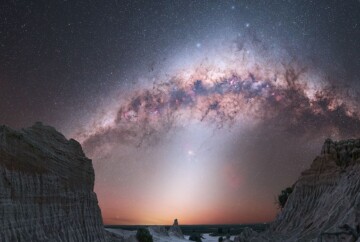
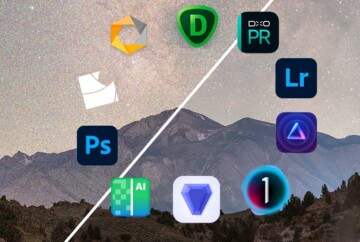

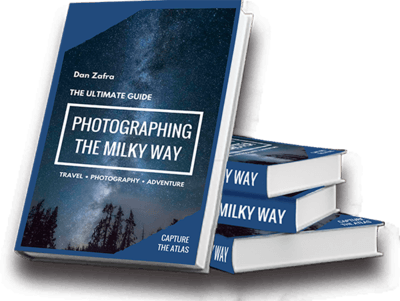
I really like the Rokinon 14mm f2.4 SP. Seems to have better quality than my other Rokinon lens or maybe I just was lucky and got a good copy.
Thanks. Great website,btw.
It’s a great option for sure! You’re welcome, Robert.
The Canon EF 24mm f1.4 mentioned in the Canon lens section has A LOT of coma. From other reviewers of this lens, it seems to be characteristic of the design and not a manufacturing flaw. If shooting at f4 it’s probably not a problem, but that sort of defeats its use for astrophotography. For a prime lens at its price point, I would have expected better from Canon. I have one to sell if anyone is interested. ; )
I got a Rokinon/Samyang 24mm f1.4 as a replacement for a fraction of the cost of the Canon that performs much better, but be aware that it is a manual focus lens.
Thanks Alan! Also it’s important to mention to low quality control of Rokinon; I’ve seen everything from very good to absolutely terrible lenses even considering the same model.
Hi Dan, I’m thinking of purchasing the Sigma 14mm f1.8 lens for the upcoming northern lights tour and am considering using it for Milky Way photography. I currently own a Nikon d850 and am wondering if this is a good choice or should I purchase the Nikon 24mm f1.4 lens?
Hi Marianna,
For sure it’s a great lens for Milky Way and northern lights photography. You can also consider the Nikon 20mm f1.8 which is lighter lens.
Best,
Dan
Hi Dan,
You forgot that some of us have cameras like D850. And I’m not going to replace it soon.
Hi Avrom, then the Nikon 20mm f1.8 is a great option for the Milky Way 🙂
Surprised the lens featured on the email isn’t listed – the Sigma 14mm 1.8. It is has been my favorite for a long while and even though now I’m starting to play with longer focal lengths, it is a super easy lens to get images with.
You’re right, Randy. We’ll consider it to join the list. Thanks.
I HAVE THE OM-1. IS THE 8-25 ZOOM LENS OK?
Hi Don, I’d get something faster if possible, like the 17mm f1.8. Wide aperture and wide focal length is recommended.
I would also like to see the Sony E 11mm f/1.8 APS-C lens in the next update.
Thanks for the comment! We’ll take note for the APS-C section 😉
One to add to your list for APS-C lenses, is the very sharp Viltrox 13 mm / 1.4. ‘Not sure what all mounts are available, but I have it for Fujifilm.
Hillel,
Never tried it but I’ll consider it for the list!
I have 2 of the lenses you listed:
1. Tamron 17-28mm f2.8
2. Zeiss Batis 18mm f2.8 which do have grooves for screw in a filter. I have my filter on it. You’re right both give great images.
Thanks for sharing your experience. Both are great lenses for Milky Way! 😉
I have found the TTArtisans 7.5 mm f/2 fisheye to be quite good. I do long MW time-lapses and need for the MW to stay infield for hours.
You mention that most widefield large aperture primes distort in the corners. Nowadays some cameras allow in-camera (not post) lens correction. This would be particularly useful for time-lapse. But unfortunately this is not usually possible for third-party lenses.
What do you think of the Canon RF f/1.2 50mm? It gets rave reviews for sharpness even wide open, though of course it not really wide enough.
Paul,
I haven’t tried the Artisan nor the mentioned Canon. I’ll try to get my hands on them in case I can add them to the article 😉
Thanks for sharing!
Dan
I’m curious why you didn’t mention the Sigma 15-35 f1.8 art zoom lens which people rave about. It’s an aps-c lens.
Stefan,
We’ll probably include it in the next update along with the Sony 15 mm f/1.4, which looks phenomenal for Sony APS-C users
Replied to your email help with another question:
Yes Dan, I had it on iMac at home, was out and could not find it. I am covered now.
I know you must be swamped with work and contacts but I wonder if you could suggest a good LOW Coma lens in the 20mm focal length. I had a Canon EF 24 f1.4 and it had me surrounded in boomerangs. This would be almost exclusively for Astro…
For Canon R5 can be R or more likely EF I have EF – R adapter as most of my lenses are EF.
I currently have the R 15-35 Canon and
Rokinon R 14 2.8
Thanks,
John,
There’ll inevitably be some coma on any 20 mm fast lens. That said, in some lenses it’s worse than in others.
I don’t use canon, but I’ve tried many canon lenses in our workshops, and the R 15-35 is a good option. Sigma lenses are also good, but they are heavy and you’ll probably need an adaptor since most of them are designed for the Canon DSLR system.
I hope canon develop new lenses soon, like a high-quality 20 mm f/1.8!
Hi Dan, Since we typically manually focus anyway, have you ever tried any of the cine lenses for Milky-Way shots? I’m thinking specifically of the Canon CN-E 20mm T1.5 L Cinema Prime lens. It should be just as fast as the 24mm f/1.4L, but wider. Its a large, expensive lens, but should be as good as any 20mm full-frame option out there…
Eric, I haven’t tried those specifically since I also use my lenses for landscape and recording, so the autofocus is usually a must for me.
If you give them a try, I’d love to see the results 😉
I am finding out the Nikon 24mm 1.4 lens is great since I do a lot of panorama stitching both vertically and horizontally. This lens is perfect for that!!
That’s a very good lens and focal length for Milky Way photography 😉
Love using my Nikon Z 20 mm prime for Milky Way photography even though I am very new to this genre.
You have a very good lens for Milky Way photography Beth! You can learn how to make the most of your gear following our Milky Way photography guide, I’m sure you can take incredible shots with that lens 😉
Happy shooting and clear skies!
Dan